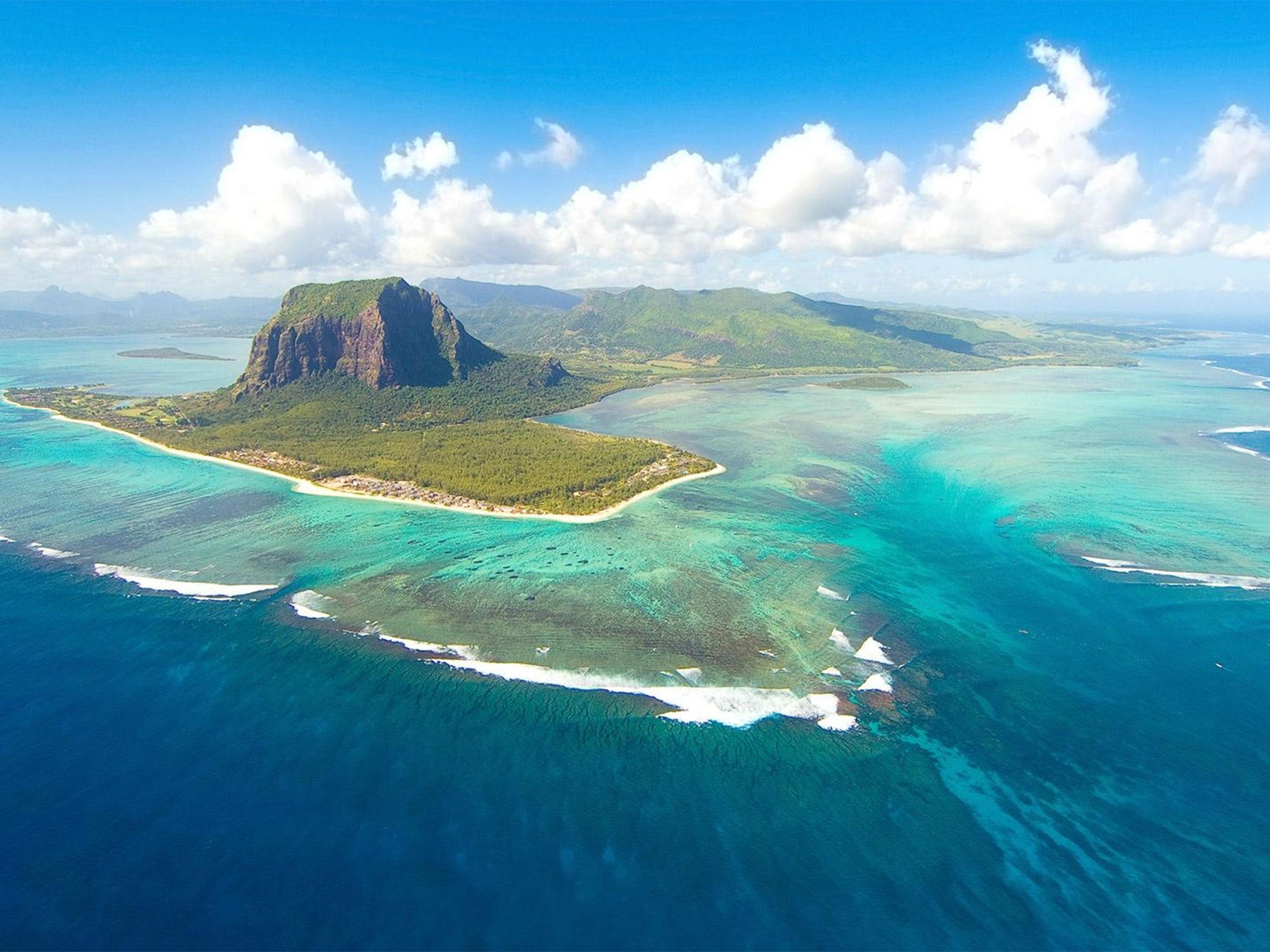Lost continent discovered beneath Mauritius in the Indian Ocean by geologists
There may be other fragments of 'super-continent' Gondwana scattered around under the sea, say researchers

Scientists have found a “lost continent” under the island of Mauritius in the Indian Ocean
The tropical island nation was formed from lava spewed by volcanoes over a period of about 9 million years. But researchers recently identified a mineral that was several billion years old in rocks found on the popular tourist destination, .
Further investigation by a team of geologists led by South Africa's University of Witwatersrand, concluded the island was actually sitting on top of an undiscovered fragment of the 200-million-year-old "super-continent" Gondwana, which split to form Africa, South America, Antarctica, India and Australia about 180 million years ago.
The piece of crust, which was coated and concealed by the young lava, could be a tiny fragment which broke off from the island of Madagascar, the team said in a paper, published in the Nature Communications journal.
“Earth is made up of two parts – continents, which are old, and oceans, which are 'young'”, said lead author Professor Lewis Ashwal. "On the continents you find rocks that are over four billion years old, but you find nothing like that in the oceans, as this is where new rocks are formed."
He added: “Mauritius is an island, and there is no rock older than 9 million years old on the island. However, by studying the rocks on the island, we have found zircons that are as old as 3 billion years.”
Zircons are minerals that occur mainly in granites from the continents. They contain trace amounts of uranium, thorium and lead, and they are highly resilient, which means they contain a rich record of geological processes and can be dated extremely accurately.
“The fact that we have found zircons of this age proves that there are much older crustal materials under Mauritius that could only have originated from a continent,” said Professor Ashwal.
The discovery was not completely new as a previous study found traces of the mineral in beach sand in 2013.
However, the results were dismissed by the academic community at the time. They said the mineral could have been either blown in by the wind, or carried in on vehicle tyres or scientists’ shoes.
“The fact that we found the ancient zircons in rock (6-million-year-old trachyte), corroborates the previous study and refutes any suggestion of wind-blown, wave-transported or pumice-rafted zircons for explaining the earlier results,” said Professor Ashwal.
The new discovery has led the academic and his team to suggest there may be many different sized pieces of “undiscovered continent” spread over the Indian Ocean. Collectively, these fragments will now be referred to as "Mauritia".
“According to the new results, this break-up did not involve a simple splitting of the ancient super-continent of Gondwana, but rather, a complex splintering took place with fragments of continental crust of variable sizes left adrift within the evolving Indian Ocean basin," Professor Ashwal said.
Join our commenting forum
Join thought-provoking conversations, follow other Independent readers and see their replies
Comments